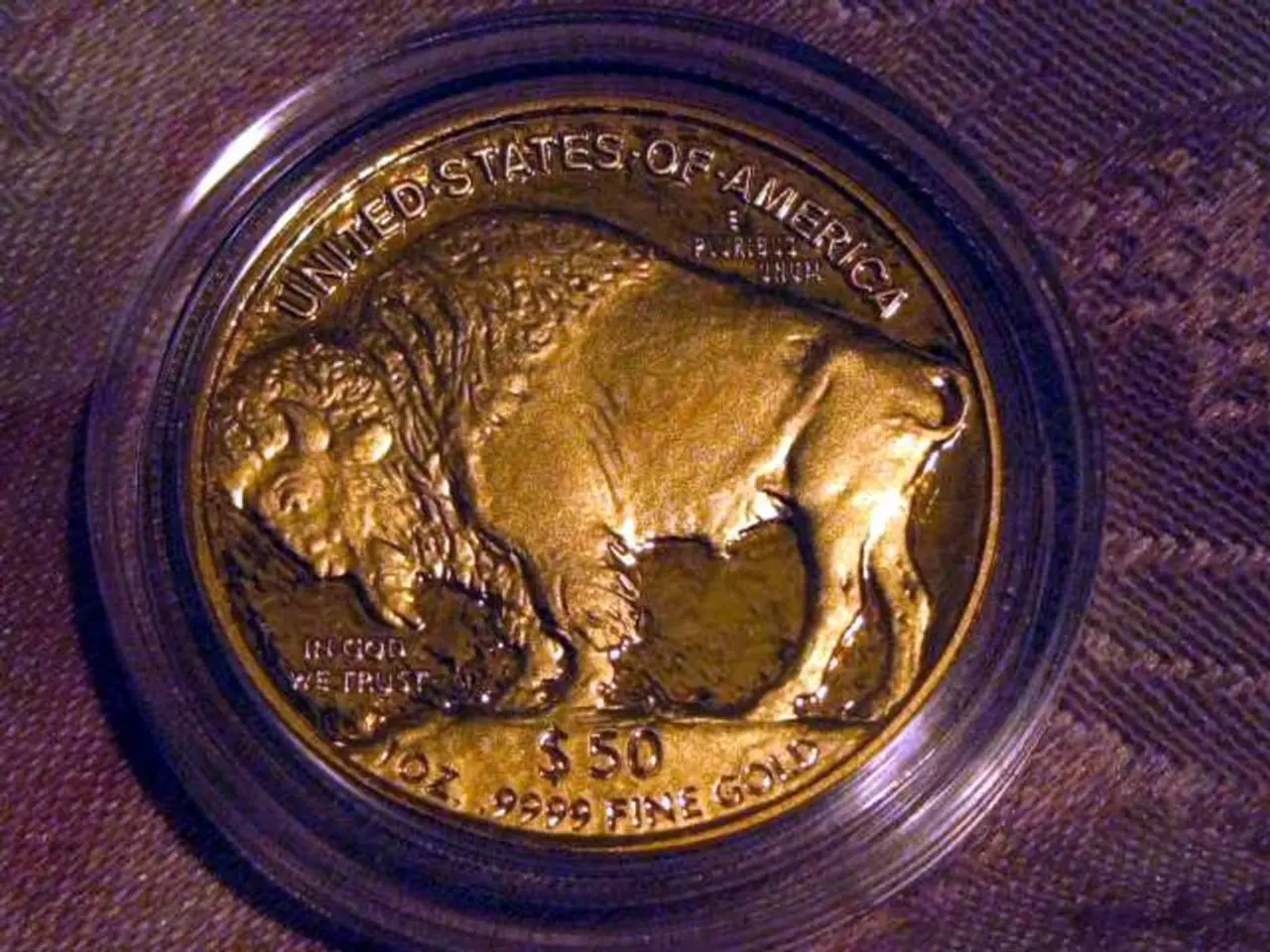Alterations to the Genius Act target potential financial conflicts within the U.S. Treasury Department
New Regulations for Stablecoins: The GENIUS Act
The U.S. Senate is set to vote on the GENIUS Act, a piece of legislation aimed at regulating stablecoins, within the next two weeks. This act introduces significant changes to the way stablecoins are regulated, particularly limiting the powers of the Treasury Department.
The GENIUS Act imposes new restrictions on Treasury powers, focusing on procedural oversight and conflict-of-interest prevention. The Act restricts payment stablecoin issuance to entities that are subsidiaries of insured depository institutions, nonbank institutions supervised by the OCC, or state-chartered entities subject to federal or substantially similar state standards.
The Secretary of the Treasury can issue regulations providing safe harbors, but is limited by prohibitions such as preventing stablecoin issuers from paying interest or yield solely for holding stablecoins. This is designed to avoid potential incentives that could create conflicts of interest.
Stablecoin issuers with more than $50 billion in outstanding issuance must file annual audited financial statements in accordance with GAAP, including disclosures of any related party transactions. This reduces the risk of undisclosed conflicts of interest.
For public companies and foreign companies not predominantly engaged in financial activities, the issuance of payment stablecoins requires unanimous approval by the Stablecoin Certification Review Committee (SCRC). This ensures the issuer poses no material risk to U.S. financial stability and complies with data use and anti-tying provisions.
The Treasury also has the power to designate non-compliant foreign stablecoins and ban U.S. platforms from supporting them. This ensures control over stablecoin risks connected to conflicts of interest or risks to banking safety.
Reciprocal agreements with foreign stablecoin regulators now require that the jurisdiction has adequate anti-money laundering and compliance standards and sufficient supervisory and enforcement powers. The Genius Act also requires published justification for recognizing foreign stablecoins from countries with equivalent regulations.
The Genius Act allows the Treasury Secretary to grant 'safe harbor' exceptions to stablecoin issuers under 'unusual and exigent circumstances.' A recent amendment requires the Treasury Secretary to justify these exceptions to the Senate Banking Committee and House Financial Services Committee.
As stablecoins become more integral to the financial system, the tension between Treasury's dual roles as debt issuer and having influence over stablecoin regulation may require more fundamental separation of authorities. Higher demand from stablecoins could lower the cost of servicing the Treasury debt, but giving the US Treasury significant influence over stablecoin issuers could put it in a position of power over significant investors in those Treasuries.
Recent research by the Bank for International Settlements (BIS) quantified the potential significant impact that stablecoin demand can have on short-term Treasury rates. As the use of stablecoins continues to grow, the GENIUS Act aims to provide a solid regulatory framework to mitigate risks and protect the U.S. financial system's safety and soundness.
[1] Congressional Research Service, "The GENIUS Act: Overview and Analysis," July 27, 2022. [2] Federal Reserve, "Stablecoins: An Overview," June 2021. [3] Office of the Comptroller of the Currency, "Stablecoins," accessed October 1, 2022.
- The upcoming vote on the GENIUS Act by the U.S. Senate targets regulating the issuance of stablecoins, with new rules applying especially to entities within the banking sector and those supervised by the OCC.
- Part of the GENIUS Act's criteria for payment stablecoin issuance includes being a subsidiary of insured depository institutions, entities supervised by the OCC, or state-chartered entities subject to federal or substantially similar state standards, aimed at preventing conflicts of interest.
- The Secretary of the Treasury is empowered to issue regulations granting safe harbors to stablecoin issuers under specific conditions, while being prohibited from allowing stablecoin issuers to pay interest merely for holding stablecoins.
- Stablecoin issuers with a high volume of outstanding issuance ($50 billion or more) must file annual audited financial statements, which include disclosures of related party transactions, to reduce the risk of undisclosed conflicts of interest.
- Issuers of payment stablecoins must obtain approval from the Stablecoin Certification Review Committee (SCRC) if they are public companies or foreign companies predominantly engaged in activities other than finance, ensuring compliance with data use and anti-tying provisions and assessing the risk to U.S. financial stability.




